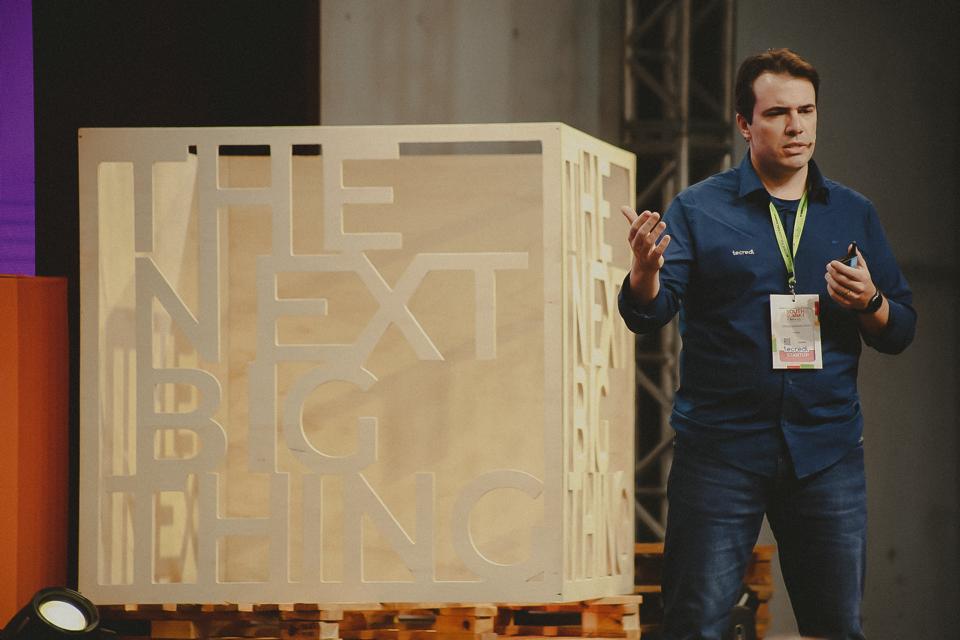Decentralized finance, or DeFi, has arrived in Brazilian fintechs and will soon be their future. “We are in the initial moments of a new global financial system”, said Gustavo Pulga, CEO of fintech Tecredi, in an exclusive interview with Panorama Crypto.
Tecredi offers credit through a digital platform, with vehicles as collateral. Its operation is 100% digital and with its own algorithms for analysis, thus reducing the risk of the operation and offering more attractive interest rates to its clients, individuals and companies. DeFi enters the cycle to boost Tecredi’s funding.
The fintech, says Gustavo, was the first in Brazil to use a DeFi platform to raise funds with investors. “This allowed the gains to be passed on to our clients through more competitive interest rates, always respecting the profile of each borrower”, said the executive.

Gustavo Pulga
The Brazilian startup chose DeFi to unlock the scale of credit for individuals. But, more than that, it is a way for fintechs to operate more competitively with large institutions, making the entire market increasingly accessible.
For the executive, this will be the reality that national fintechs must embrace to continue innovating and gaining scale in credit.
Check below the exclusive interview with Tecredi’s CEO:
What does Tecredi do, and what problems do you tackle?
Tecredi is a digital credit platform that uses vehicles as collateral, reducing the risk of the operation and offering better interest rates to its customers. Our credit solution for vehicle financing and refinancing allows retailers and marketplaces to analyze and provide credit in seconds. Our partners increase their operations and, consequently, their profits, by delivering the ideal solution, through an agile and secure experience to their customers.
How does Tecredi use DeFi to fund customer credit?
The adoption of DeFi around the world, besides creating many opportunities, has improved efficiency and security in access to capital, removing barriers and shortening the chain between supply and demand or investor and borrower of financial resources.
Tecredi was the first company in Brazil to raise financial resources using DeFi. This allowed the gains to be passed on to our clients through more competitive interest rates, always respecting each borrower’s profile.
How does the DeFi platform that you use work?
We raise funds from investors we might not have access to or would have difficulty accessing. Besides, we can reach investors from other parts of the world. We use the Credix platform, which does all the due diligence, and we raise funds faster, with lower fees and more security. We pass this on to our clients. For us, DeFi is key to scale and obtaining resources.
Why did you opt for DeFi? What paths can DeFi Finance take for the B2B market?
We are following some of the disruption caused by DeFi solutions and wanted to incorporate some of these benefits into our journey.
We are in the early stages of a new global financial system, where Web3.0 offers opportunities and challenges that are still being unraveled. I do not doubt that many of the solutions will come through the regulator.
I believe that companies will increasingly use DLT (Distributed Ledger Technology) based financial products and services to improve operational efficiency, reduce costs, and provide greater transparency to the parties.
In the coming months, we will see many solutions using blockchains and tokenizing assets. According to a recent study published by the Boston Consulting Group (BCG), in partnership with the Singapore exchange ADDX, the impact caused by DeFi could reach 10% of global GDP by 2030. That is, we are talking about something estimated at US$ 16.1 trillion.
There is still a lot to be done, and many existing solutions are in the validation phase and will probably not survive. But this environment of rapid validation and constant evolution has drawn the attention of many companies and professionals.
What questions should fintechs be asking themselves the most these days?
For me the big question that every company should ask is: how to add more value to the solution we deliver to my client? Despite being obvious, this rhetorical question requires a clear definition of purpose, of knowing your company, the market, and mainly, the client’s pains.
Amid constant technological innovations and fads, separating what really makes sense and is worth incorporating into the process becomes fundamental to avoid losing focus and ending up having its value reduced before the clients.
It is a fact that DeFi offers opportunities for fintechs to improve processes and increase efficiency. However, it is up to each company to understand: What? How? and When?
How does blockchain change the game for fintechs? And how will it reach people?
The benefits of using blockchain are not the same for every company, nor are the challenges, efforts, and costs to adopt it. Each fintech will have its own journey of discovery and maturity.
What is clearer to me is that at some point, blockchain solutions will be incorporated into fintechs’ solutions in a layer invisible to end users.
If we think of the internet as an analogy and example, most people are not interested in knowing about communication protocols or security tools. Instead, they use these technologies to solve problems/pains that have nothing to do with technology.
This is how I see blockchain solutions as means and not ends to improve security, reduce steps, and improve the efficiency of financial transactions, contracting services, and purchasing products.







